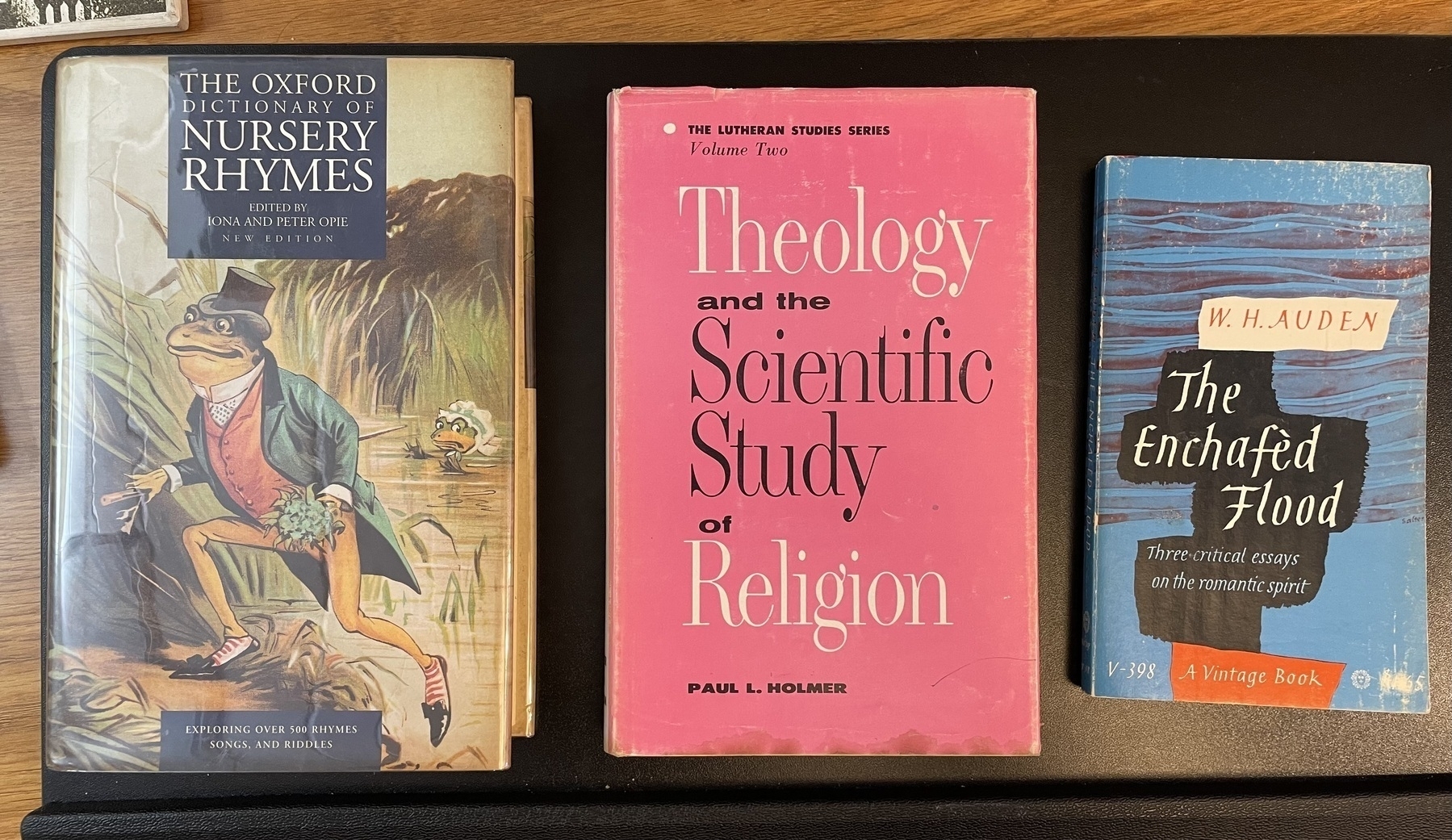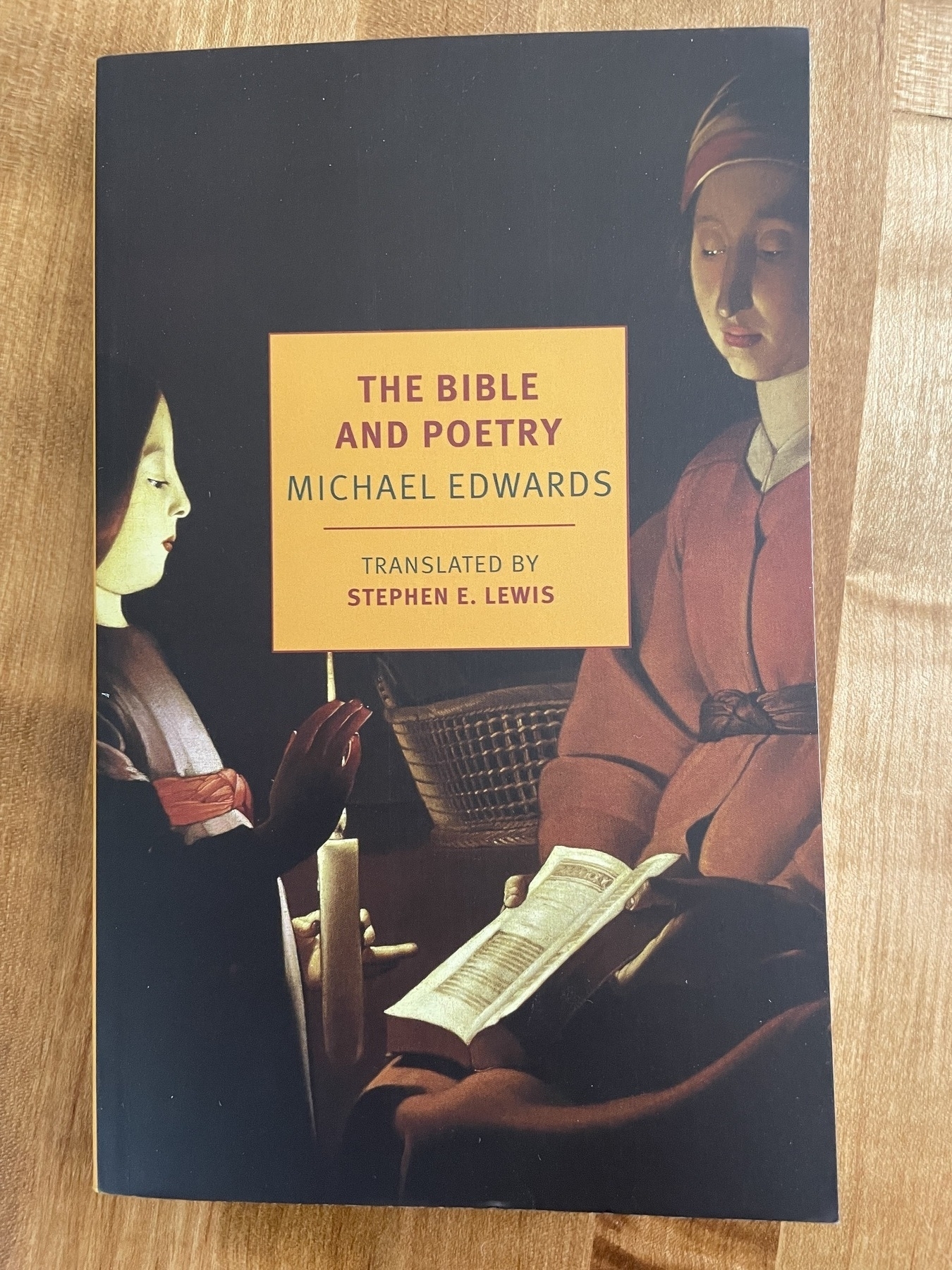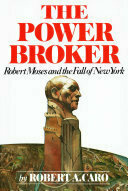Currently reading: A Time to Keep Silence by Patrick Leigh Fermor 📚
'What man needs is silence & warmth; what he is given is an icy pandemonium.' ~Simone Weil
Currently reading: Aspects of Truth by Catherine Pickstock 📚
Currently reading: If On A Winter’s Night A Traveler by Italo Calvino.
Christmas: the perfect time to reread old favorites. 📚
Finished reading: The Blue Flower by Penelope Fitzgerald
Another Penelope Fitzgerald book I love.📚
Currently reading: The Blue Flower by Penelope Fitzgerald 📚
Finished reading: Station Eleven by Emily St. John Mandel 📚
Finished reading: *The New Leviathans* by John Gray
Finished reading: The New Leviathans by John Gray.
A book with no single overarching thesis beyond an examination of how liberal democracy is in crisis in the West, and how the alternatives at the moment, primarily Russia and China, are… unsavory.
Gray’s book, just 3 brisk chapters, helpfully resuscitates Hobbes as interested in the wide range of forms Leviathan can take to provide order, peace, and freedom to its citizens. Unfortunately, all of these are more or less totalitarian—which is why Gray finds in Hobbes a helpful thinker for our age, in which the world is converging on forms of surveillance capitalism:
The seeming triumph of liberalism and the free market was not an evolutionary trend but a political experiment, which has run its course. The result has been to empower regimes in which market forces are instruments of the state.
Instead of China becoming more like the West, the West has become more like China.
The middle chapter of the book is composed of a series of short vignettes of different disenchanted Soviet political thinkers, poets, & artists, such as Konstantin Leontiev, Vasily Rozanov, Dostoevsky, Alexander Boldyrev, Polina Barskova, Daniil Kharms, Jósef Czapski, and Teffi—most of whom have been forgotten by history; all of whose lives and writing, however abortive, provide a testament to the horrors of life under the Soviets.
In the book’s first and final chapters, Gray turns his attention to the ways in which our new Levianthans are different from Leviathan as Hobbes imagined it:
The goals of Hobbes’s Leviathan were strictly limited. Beyond securing its subjects against one another and external enemies, it had no remit. The purposes of the new Leviathans are more far-reaching. In a time when the future seems profoundly uncertain, they aim to secure meaning in life for their subjects. Like the totalitarian regimes of the twentieth century, the new Leviathans are engineers of souls.
Even as our surveillance and industrial-agricultural technologies are become more and more powerful, though, natural is fighting back. Gray suggests that these new Leviathans may be tamed by nature herself, as climate change resists our efforts to feed billions. Future prospects are grim, however much “progress studies” rational optimists fill our feeds.
In the end, as a skeptical, humanistic Christian, I appreciate Gray’s skeptical, pessimistic, atheistic humanism. He doesn’t pretend the Christian roots of our current liberal order can be jettisoned without massive cost. Despite the bleakness of his outlook, he ends with not a call to arms, but a call to life:
If we go on, it is because we cannot do otherwise. It is life that pulls us on, against the tide, life that steers us into the storm.
Not quite stirring words, though one gets the sense they’re as rousing as Gray can muster.📚
Currently reading: Your Face Belongs to Us by Kashmir Hill 📚
Currently reading: Toward the Winter Solstice by Timothy Steele 📚
Finished reading: The Bible and Poetry by Michael Edwards.
A fascinating and very idiosyncratic look at Scripture, from an unexpected quarter: Edwards is a member of the Académie Française and one of the world’s leading Racine scholars. If you’ve ever wondered why so much of the Bible is poetry, and how that fact should influence your reading of Scripture, this is a very good starting point.
Plus, anything published by New York Review is worth reading at least once. 📚
Finished reading: Meet Me at the Lighthouse by Dana Gioia.
A delightful collection of poems, songs, & a few translations. I especially loved the closing sequence, “The Underworld.” I read “The Ballad of Jesús Ortiz” aloud to me daughter, & she loved that. 📚
Tyler Cowen draws attention to the remarkable life and work of the Catholic religious scholar R.C. Zaehner, whose Wikipedia page is, indeed, fascinating and wild. 📚
Currently reading: The Bible and Poetry by Michael Edwards 📚
Finished reading: Zen in the Art of Writing by Ray Bradbury.
I love Bradbury’s simple, relentless enthusiasm for writing. 📚
Do not hurry; do not rest.
~Goethe; h/t Annie Dillard 📚
Currently reading: Zen in the Art of Writing by Ray Bradbury 📚
It’s incredible how many good book groups, seminars, & tutorials the Catherine Project is offering this fall—and all for free! I’d love to join them all. 📚
Currently reading: In Search of Lost Time Volume I Swann’s Way by Marcel Proust.
It’s been a decade or so. Just 25 pages in, I can’t believe how many gems I’ve already forgotten. 📚
Finished reading: The This by Adam Roberts.
Lots to think about with this delightful book. Roberts calls it a Hegelian sequel to his Kantian book The Thing Itself. I think it can be equally read as a sort of hellish prequel to Purgatory Mount (is Paradise next?), or as a sci-do cautionary-tale companion to Nita Farahany’s The Battle for Your Brain.
In any case, science fiction at its strangest & best. 📚
Currently reading: The This by Adam Roberts 📚
Finished reading: Mansfield Park by Jane Austen.
Rather sobering to have finished it on Father’s Day. But, like all of Austen, full of wisdom: a reflection on good judgment. 📚
My friend Rick recently helped design a book of poems about Parkinson’s disease.
The book is written by John Foley and illustrated by the great Mary GrandPré of Harry Potter fame.
Download a copy for free here. Hope you find it encouraging! 📚


